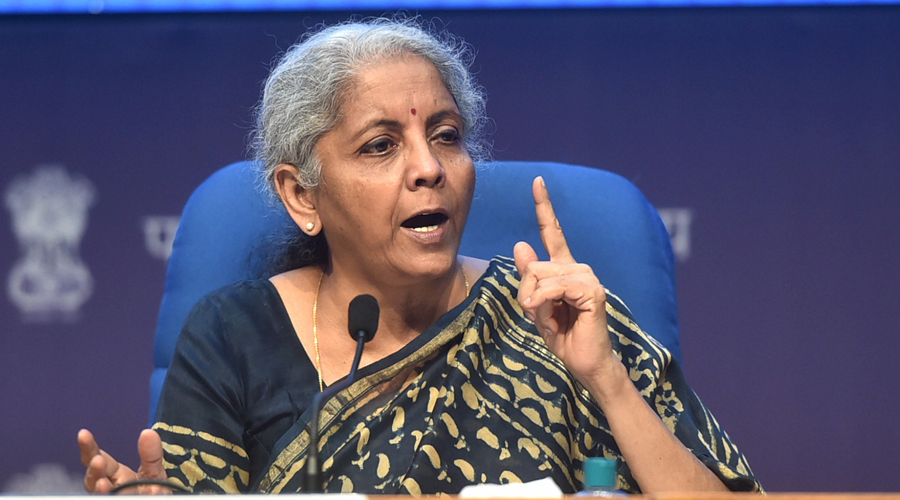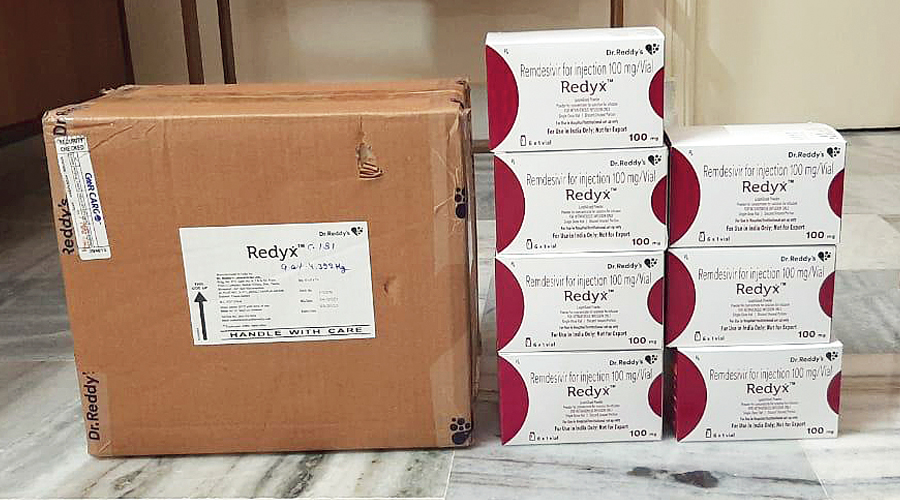The GST Council on Saturday slashed the tax rate on Covid-19 drugs such as Remdesivir and Tocilizumab as well as on medical oxygen and oxygen concentrators but ignored demands for a reduction in taxes on vaccines.
The Council, acting on the recommendation of a group of ministers (GoM) from different states, cut to nil from the existing 5 per cent GST on Covid-19 drug Tocilizumab and black fungus medicine Amphotericin B.
Hand sanitisers, pulse oximeters, BiPAP machines, testing kits, ambulances and temperature check equipment were among the 18 items on which GST rates were lowered.
“It was felt that the GoM’s recommendations have brought in a lot of substantial change. Many items, that were at 18 per cent and 12 per cent, were brought down to 5 per cent,” finance minister Nirmala Sitharaman said while briefing reporters after the 44th GST Council meeting here.
However, the GST rate on Covid vaccines was retained at 5 per cent as the Council felt that the majority of the vaccine procurement was being done by the Centre and given free to people.
“The central government is purchasing 75 per cent and is paying GST also. But the impact of this GST on people will be nil as people would be getting vaccines free of cost at government hospitals,” Sitharaman said.
Revenue secretary Tarun Bajaj said: “The GST will also be borne by the Centre. But out of the income from GST, 70 per cent will be shared with the states.” He said the notification of lower GST rates would be issued “tomorrow or day after”.
The FM added that no other issue such as compensation to states figured in the meeting.
The council said the tax cuts are valid till September 30 and can be further extended, if needed, as the deadline nears.
Ritesh Kanodia, partner, Dhruva Advisors, said: “The GST council’s decision to not cut the rate on vaccines will help to maintain the principle of fungibility of credit under GST and, thereby, not lead to any cost increase arising from loss of credits. Steps such as zero rating with credits or full abatement with credit could have also led to an aberration under the GST laws.
“At the same time the government has ensured that people are not burdened with the the GST cost by picking up the same, except where it may not matter such as purchases by private parties.”
M.S Mani, senior director, Deloitte India, said: “While the reductions on medication and equipment are good measures, curtailment of the exemption period would make it difficult for businesses to plan new investments and expand their supply chains in order to ensure that they reach all corners of the country. Businesses engaged in manufacture and trading would hope that the period is extended beyond September 30.”
Abhishek Jain, tax partner, EY, says: “The cut in rates will be much appreciated by the general public.”











